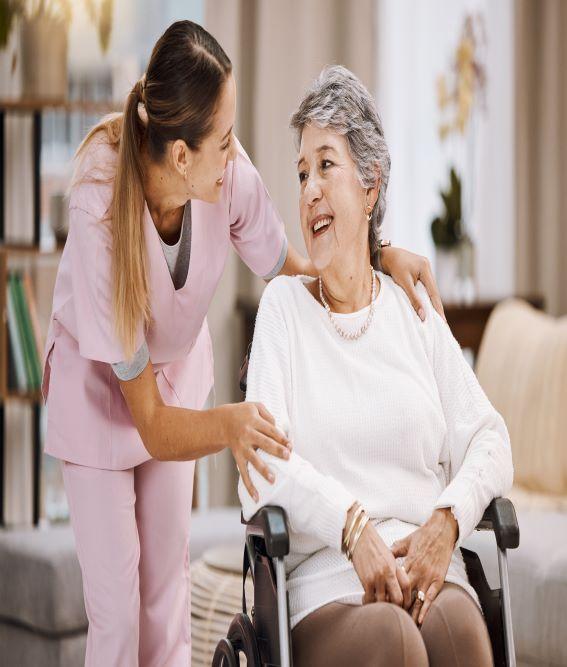Types of Preventive Care & How They Support Independence

It’s natural to want to stay at home and age in place, especially if you’ve lived independently for several years. Implementing preventative care and lifestyle practices reduces your risk of chronic illness and injury.
Physical Fitness and Flexibility
Keeping yourself mobile helps you maintain independence. A lack of mobility increases your chance of muscle, bone and joint injuries. Creating a fitness routine that includes at least 10 minutes of daily stretching, 30 minutes of aerobic exercise and light weight training will strengthen and elongate your muscles and improve your range of motion. Taking a walk each day is an easy way to include cardio. Invite a friend or family member, or listen to music while you stroll.
Eat to Support Your Body and Mind
Your body produces less of the essential nutrients it needs as you age. Eat a balanced diet with calcium, magnesium and Vitamin D to strengthen your bones and joints.
Eating foods with anti-inflammatory properties also reduces your risk of joint stiffness and damage. Spinach, kale, fatty fish and tomatoes are foods known to fight inflammation. Include fruits and vegetables with antioxidants, folate, zinc and Vitamins A and C.
Preventive Health Practices
Taking precautionary steps to stay safe is an important part of preventative care. Alert pendants and bracelets provide a direct line to emergency services wherever you are around your house. Installing handles and grab bars and keeping walkways clear may lower your likelihood of falls.
Creating an emergency supply kit is also part of practicing preventative care. In the event of bad weather or a power outage, you should have a few days’ worth of food and water, a flashlight, batteries, a radio, extra clothes, medications, first aid supplies and personal items.
Importance of Social Interaction
Staying socially engaged is essential to your mental health. Talking on the phone, chatting with your neighbor or getting out of the house to socialize can prevent loneliness, depression and isolation. Maintaining a social schedule also allows you to check in with your loved ones so they know you’re safe.
Schedule time to talk to a friend, family member or neighbor at least once daily. Attend religious services, volunteer or visit a senior center to meet new people and interact with others who share similar interests.
Using Health Support Services
Asking for support doesn’t mean you give up your independence. Relying on loved ones and home healthcare can help you age in place safely. Using those resources allows you to get the care you need in the comfort of your home.
Check your ability to complete daily activities, such as bathing, dressing, cooking, cleaning, driving and paying your bills. If you struggle with those tasks, it may be time to consider a companion or home health service. Skilled nursing staff are trained to assist with medical needs and in-home therapy.
Home Physical Therapy to Help You Maintain Independence
Ohioans Home Healthcare is dedicated to providing home physical therapy services in northwest Ohio and southeast Michigan. Call 855-600-0806 or contact us online to learn more about our capabilities.
